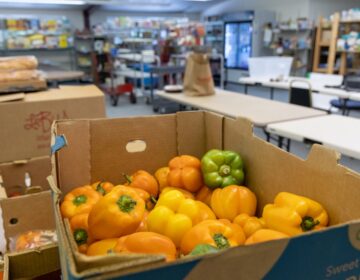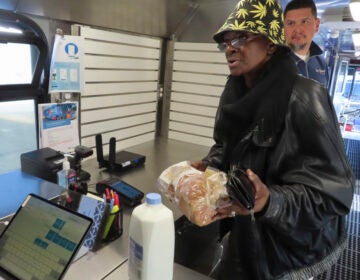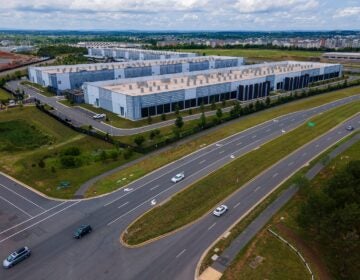N.J.’s world-famous blueberries are at the height of their season. Here’s why they’re so good
The New Jersey Blueberry Advisory Council's chairman said the state's soil is what makes the Jersey blueberry so special.
From Philly and the Pa. suburbs to South Jersey and Delaware, what would you like WHYY News to cover? Let us know!
It’s the most wonderful time of the year for blueberry fans. Plump, luscious New Jersey blueberries, rated among the best in the world, are now at their peak season.
Matthew Macrie, general manager of the 800-acre Macrie Brothers Blueberry Farm in Hammonton, said he’s been surrounded by blueberries this time of year for as long as he can remember.
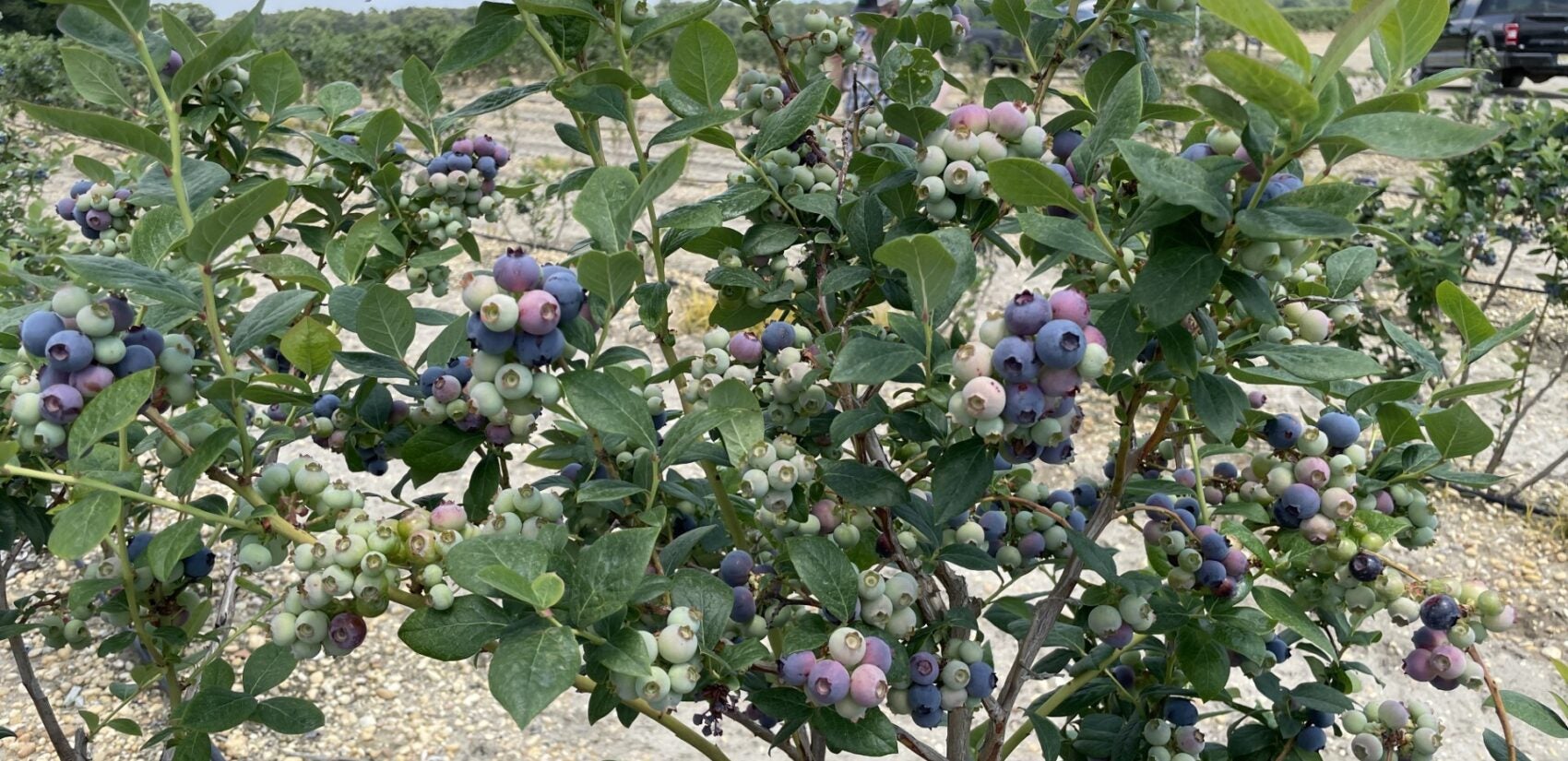
“Being a blueberry farmer is very important to me because it’s generational. It’s 70 years, or over 70 years for me. It’s a family, it’s a legend, [I’m] trying to keep this going, for my son,” he said.
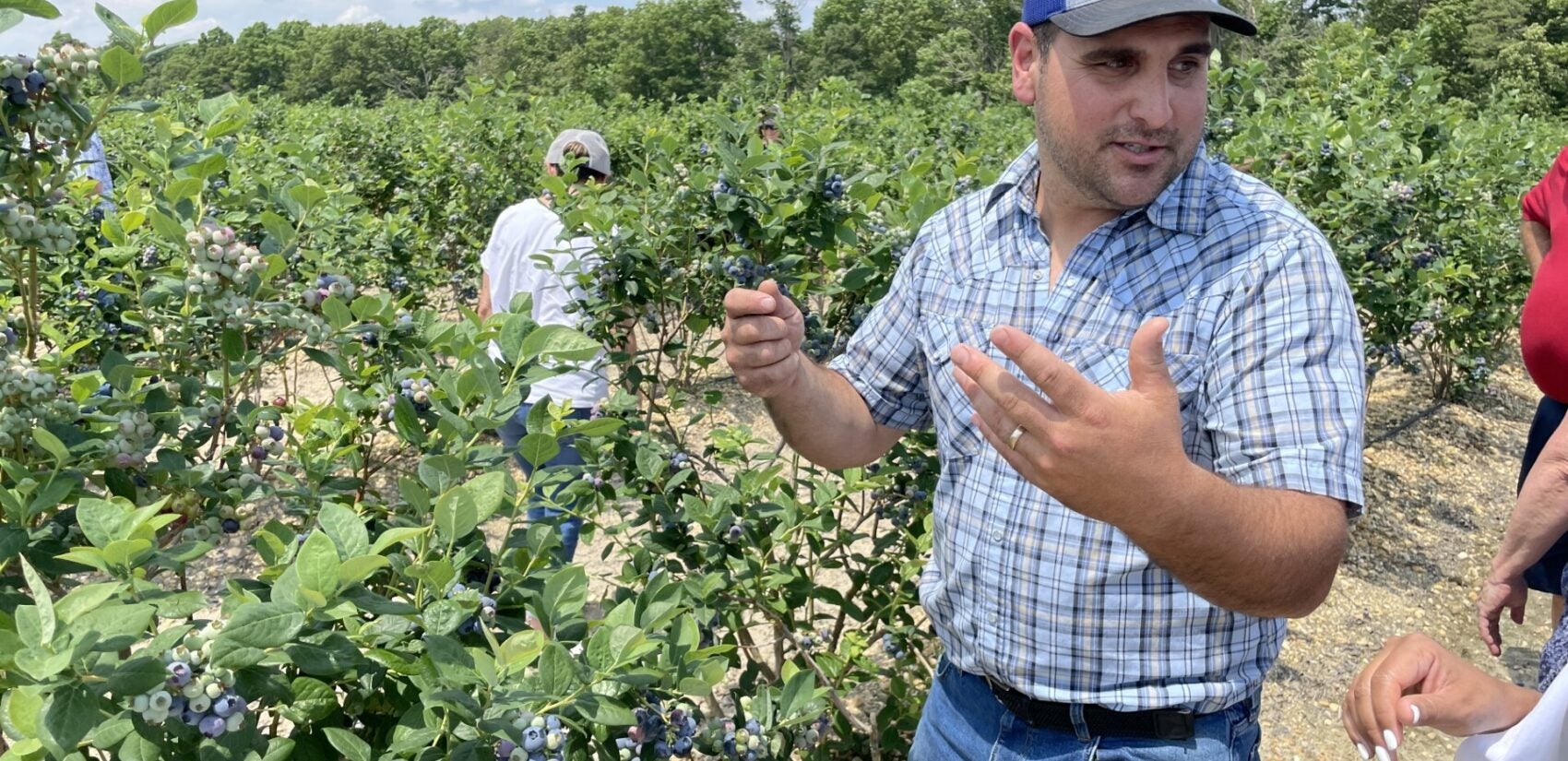
During the summer, his family’s blueberry farm employs 500 seasonal workers and produces about 5 million pounds of blueberries — after they go through special cleaning machines that separate the “bad” berries.
“Bad meaning soft, red, green, the berries that you don’t want to eat,” he said. “It’s bringing out a great product for you to have and enjoy at the store.”
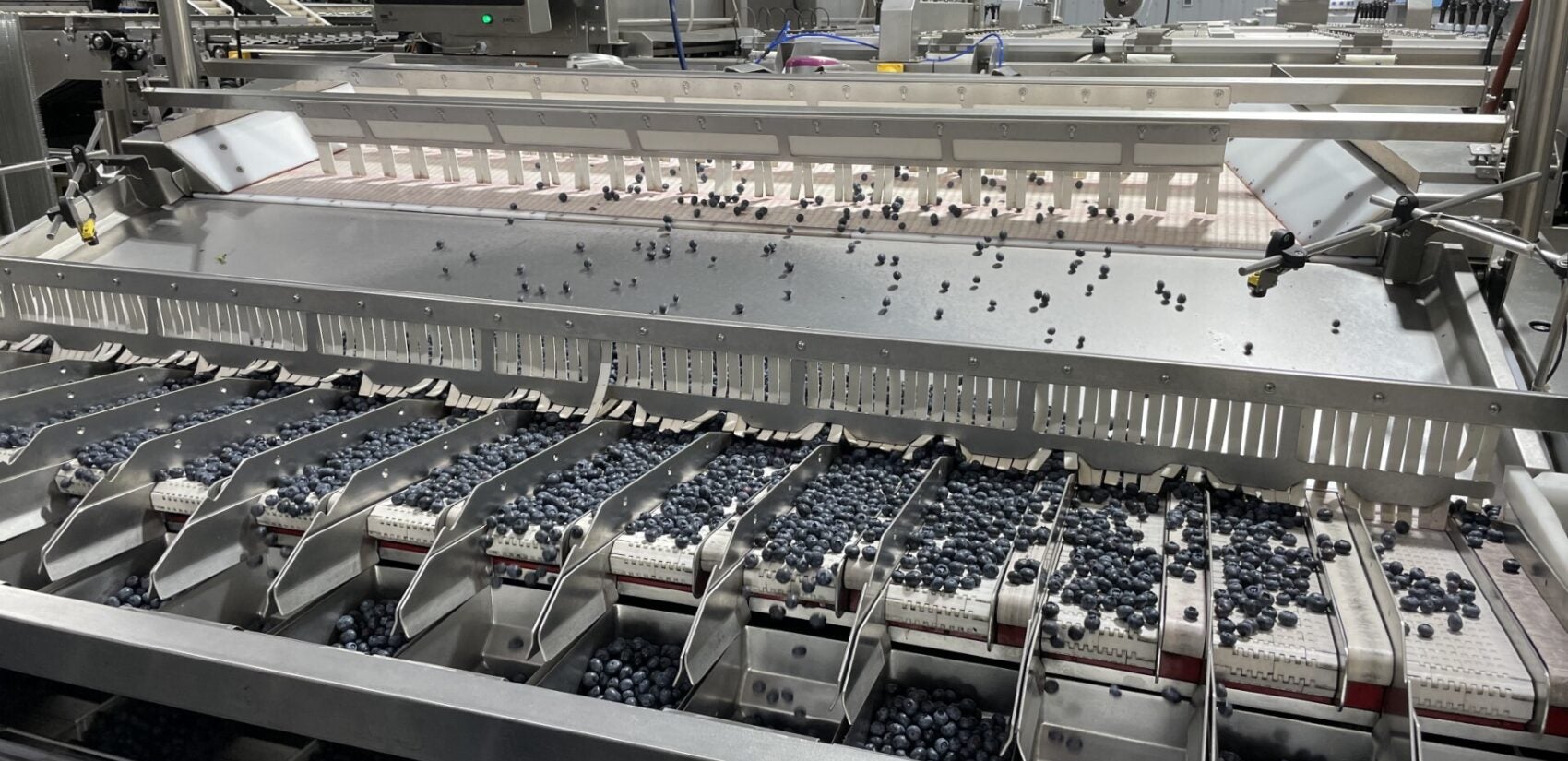
Denny Doyle, chairman of the New Jersey Blueberry Advisory Council, said that the soil is what makes the Jersey blueberry so special.
“That’s why most of the blueberries are grown in the Pinelands region, which is a lower pH in the soil; it’s a sandier type of soil, and blueberries love that,” said Doyle.
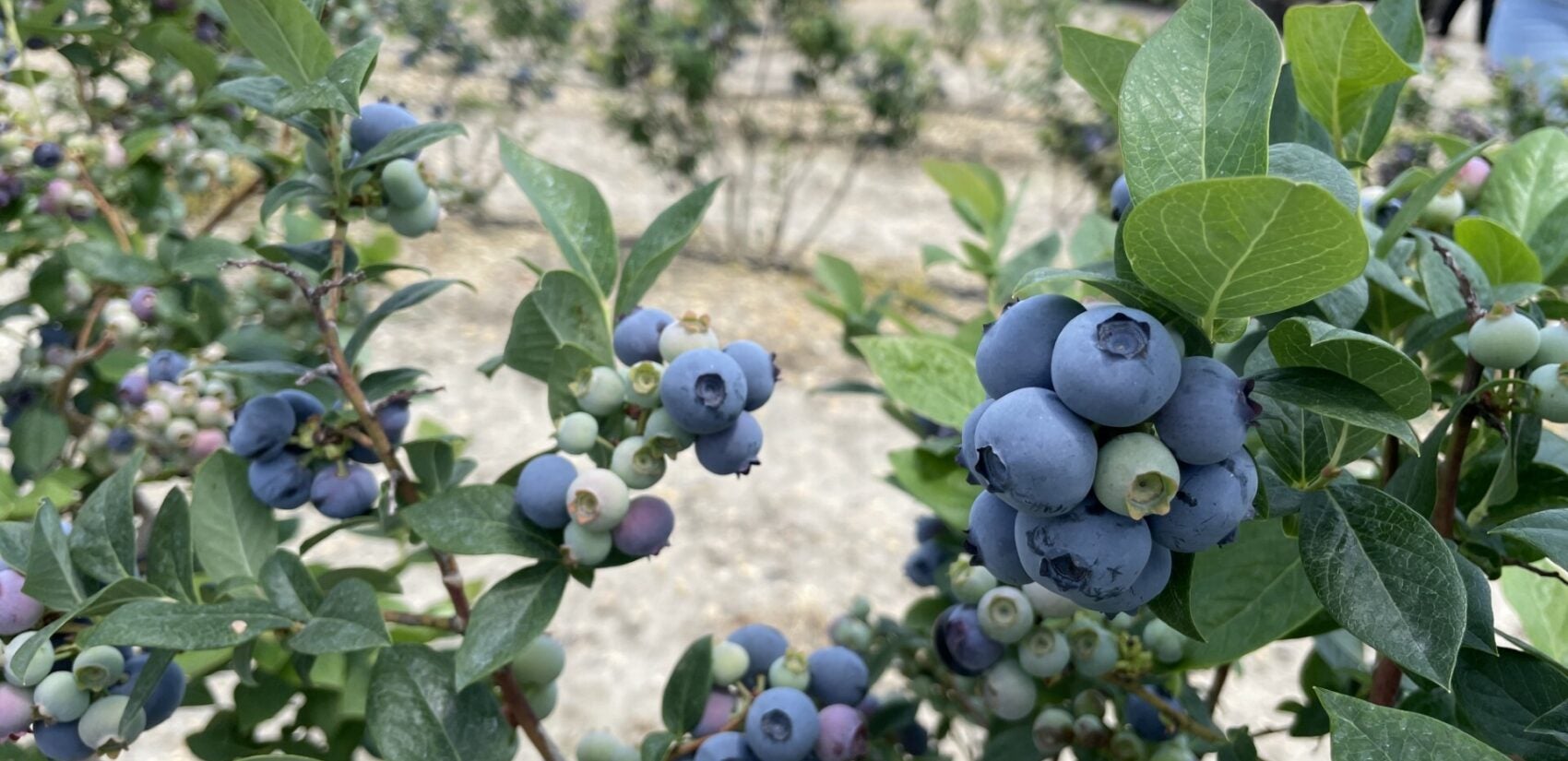
He said 40 to 45 million pounds of blueberries are grown in the state every year.
“We’re very fortunate within the metropolitan areas, we’re very close, so we can bring the freshest blueberries (to market) mostly from any state that’s producing them,” he said.

Wengryn said blueberries, tomatoes and corn are the Garden State’s big three crops, but the state also grows a lot of peaches and apples. He noted delicious Jersey tomatoes grown in greenhouses are already available, and farmers are also growing turf.
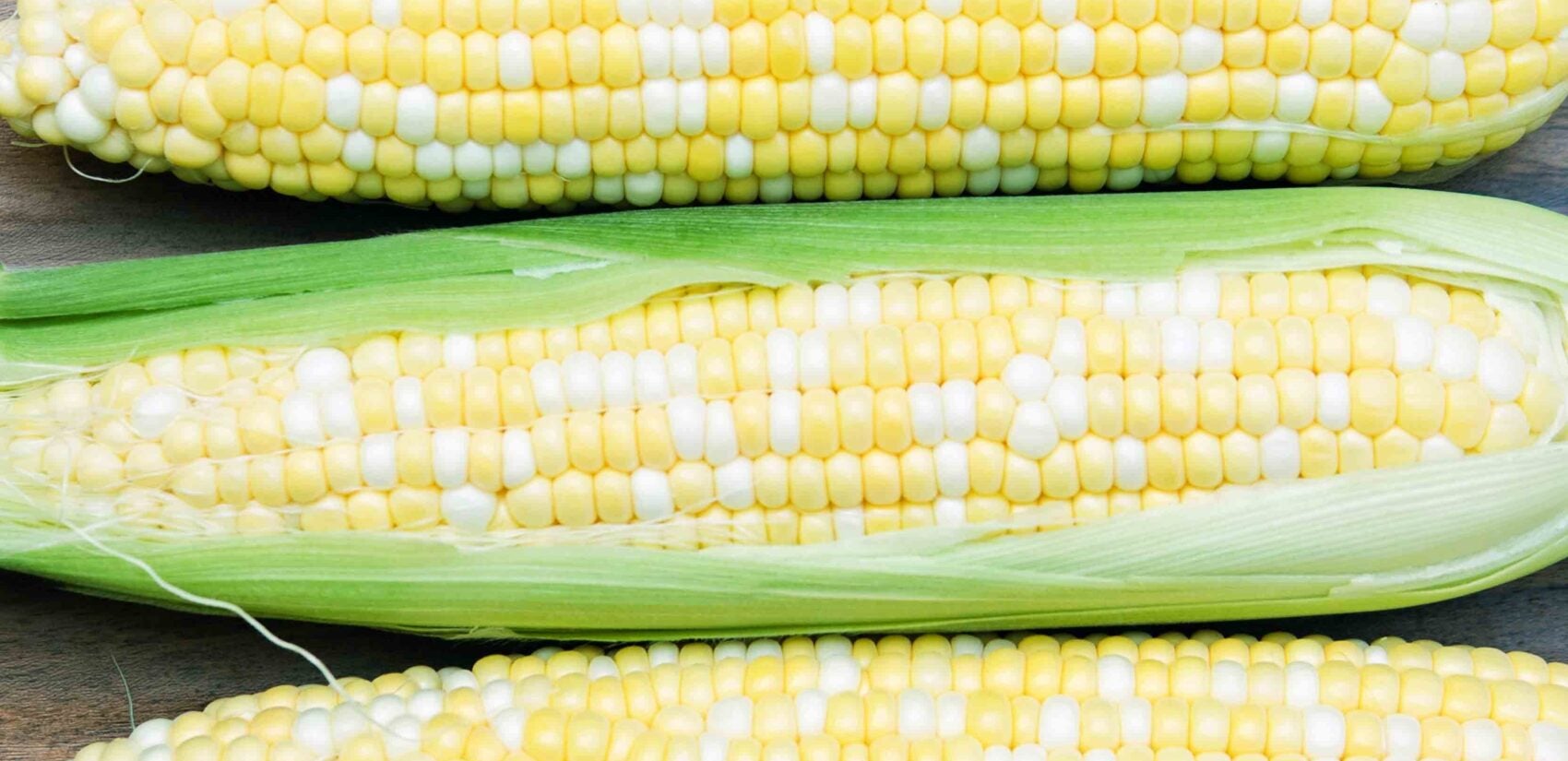
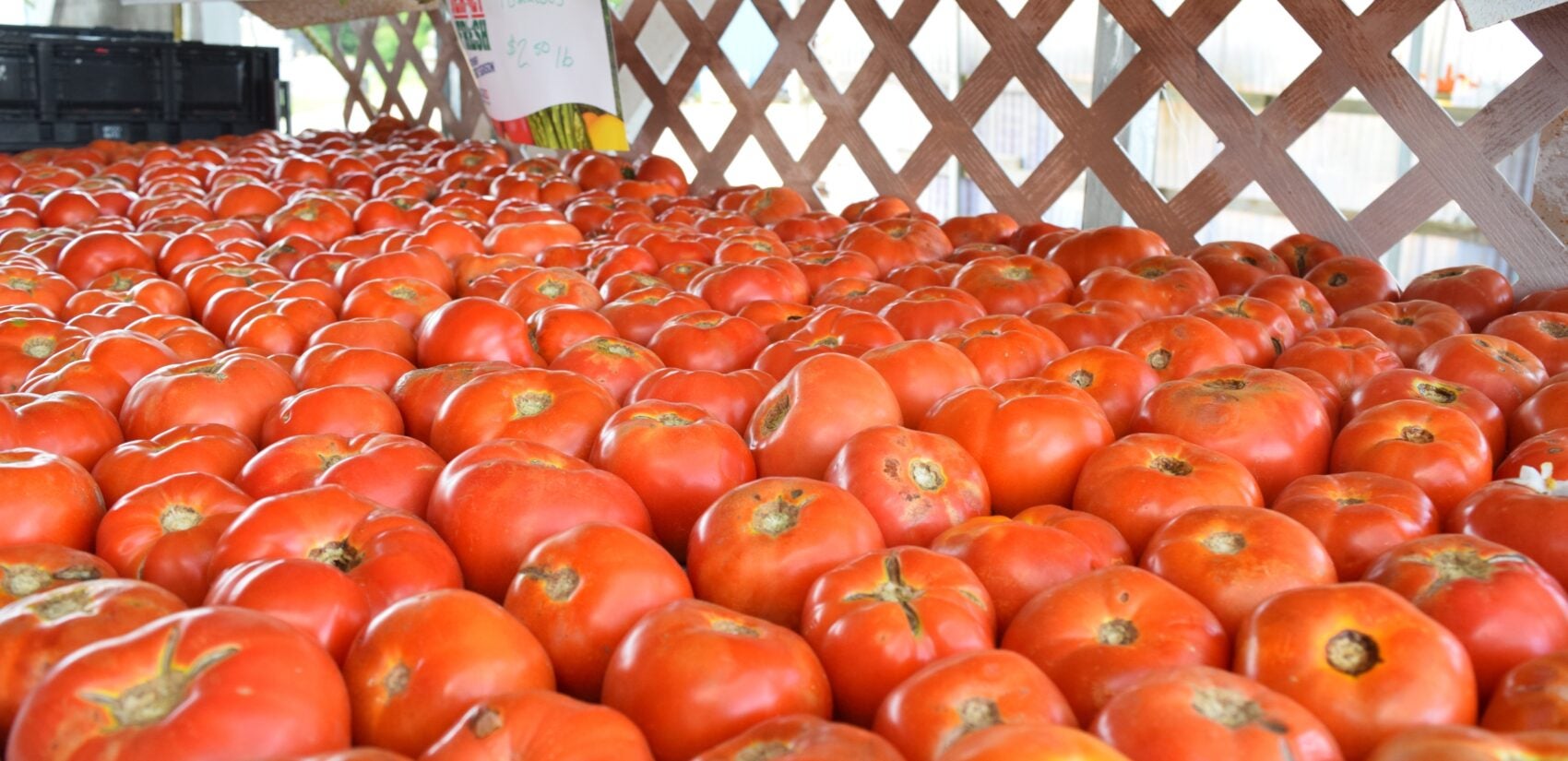
“One of the exciting things in turf. We’ve got the World Cup coming; the world will be playing on Jersey turf,” he said.
New Jersey will host several World Cup matches in 2026.
Wengryn said the Garden State has been famous for developing the high bush blueberry for more than 100 years. The bush produces bigger fruits and flowers, resulting in a more delicious, succulent blueberry.
“We’re famous for it, Hammonton, the blueberry capital of the world, no joke,” he said. “They really not only produce a lot of blueberries here, but also spread the gospel of blueberries, and [have] encouraged other countries to start growing them.”
“It’s almost like pizza sauce. You can’t eat it in California and be the same as in New Jersey,” Macrie said.
Jim Bertino, the vice-chairman of the Atlantic County Board of Commissioners, said the sandy, acid-based soil in the southern part of the Garden State is also perfect for many varieties of grapes.
“Some of the finest wines we have here [are] in Atlantic County and South Jersey. We happen to be in a good growing zone, that’s why there are some nationally known ones that are getting some recognition,” he said.

Get daily updates from WHYY News!
WHYY is your source for fact-based, in-depth journalism and information. As a nonprofit organization, we rely on financial support from readers like you. Please give today.



